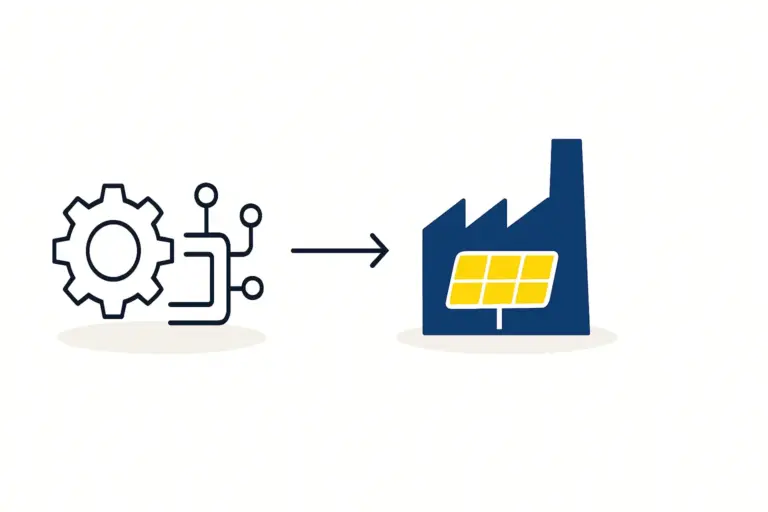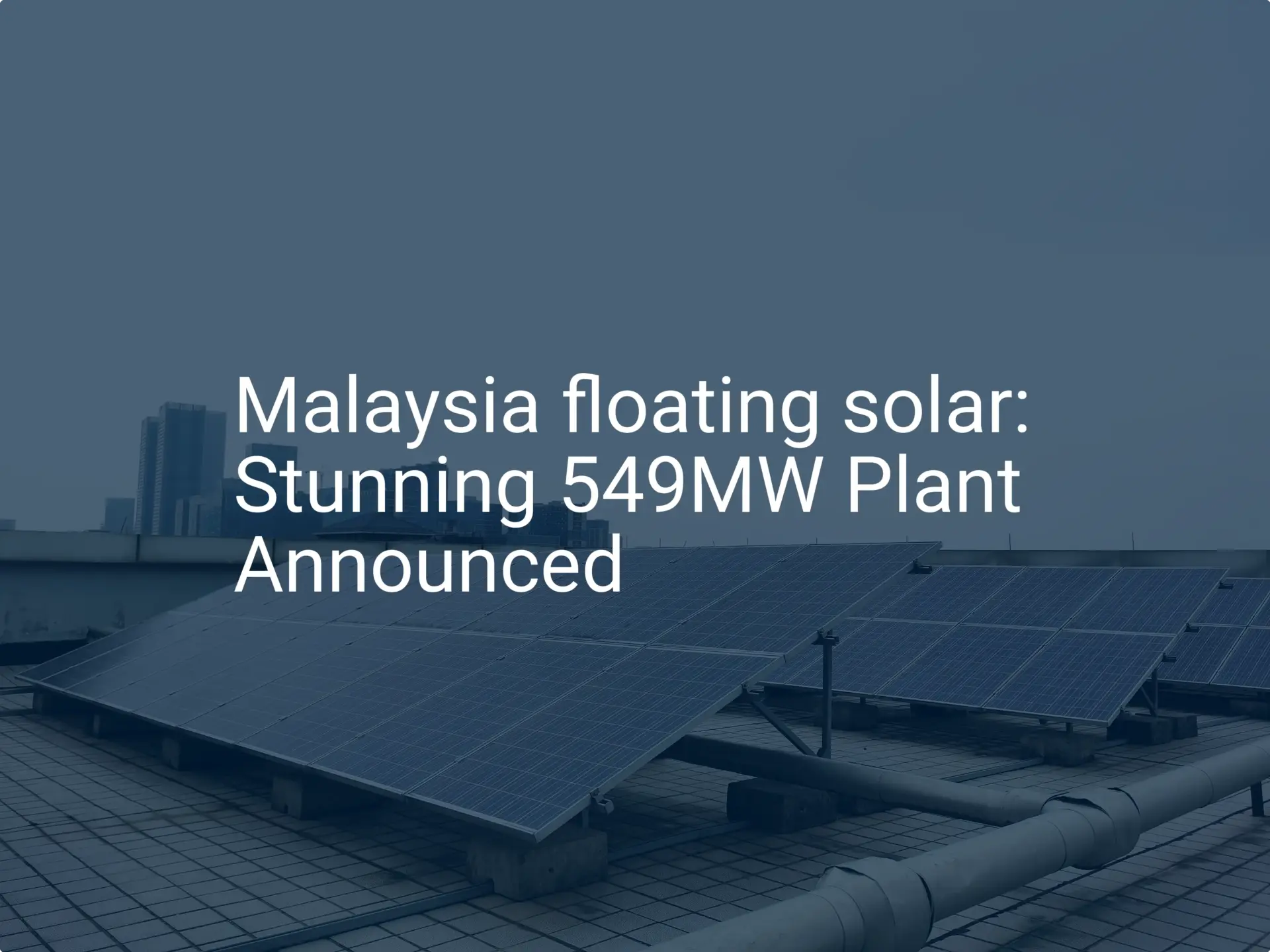An entrepreneur from Europe, already successful in logistics, notices a trend: the global solar supply chain is diversifying, and Southeast Asia is emerging as a critical manufacturing hub.
He identifies Malaysia as a prime location—a nation that has quietly become one of the top three global producers of photovoltaic (PV) modules. His expertise, however, is in business operations, not international corporate law. The first question he faces isn’t about technology or market demand, but a fundamental one: ‘How does one legally establish a manufacturing company in Malaysia as a foreign investor?’
This scenario is not uncommon. Many successful business professionals see the immense opportunity in solar manufacturing but are deterred by the perceived complexity of setting up a legal entity abroad. This guide provides a clear, procedural checklist for navigating the business registration and company incorporation process in Malaysia, specifically for foreign investors planning to enter the solar module manufacturing sector.
Why Malaysia is a Strategic Choice for Solar Manufacturing
Before diving into the legal procedures, it’s helpful to understand the business environment that makes Malaysia such an attractive destination. The country has deliberately cultivated a robust ecosystem for the electronics and semiconductor industries, which shares a significant overlap with solar PV manufacturing.
Established Supply Chain: Malaysia is not a newcomer but a major global player, particularly in the production of solar cells and modules. An established supply chain for materials and components, along with sophisticated logistics infrastructure, is already in place.
Government Support: The Malaysian Investment Development Authority (MIDA) actively promotes investment in the renewable energy sector. It offers various incentives, including tax exemptions and investment tax allowances, to attract foreign capital and technology. For any solar manufacturing venture, MIDA is the primary government agency to engage with for licensing and support.
Skilled Workforce: With a long history in high-tech manufacturing, the nation has a workforce with the technical skills necessary for operating sophisticated production lines. English is widely spoken in business and technical circles, simplifying communication for international management teams.
Strategic Location: Situated in the heart of Southeast Asia, Malaysia offers excellent logistical access to high-growth regional markets as well as established global shipping lanes.
This combination of factors creates a fertile ground for new solar manufacturing operations. The key, however, lies in establishing the correct legal foundation from the outset.
The Core Legal Structure: The ‘Sdn. Bhd.’ Company
For a foreign investor, the most common and suitable business entity in Malaysia is the Sendirian Berhad (Sdn. Bhd.). This is the equivalent of a private limited company (Ltd.) or a limited liability company (LLC) in other jurisdictions.
The primary advantages of an Sdn. Bhd. for a manufacturing setup are:
-
Limited Liability: As a separate legal entity, it protects the personal assets of shareholders from the company’s debts and liabilities. The risk is confined to the capital invested in the business.
-
Perpetual Succession: The company can continue to exist even if its ownership changes. This stability is crucial for long-term planning and securing financing.
-
Credibility: Operating as an Sdn. Bhd. enhances credibility with suppliers, financial institutions, and government bodies like MIDA, signaling a serious, long-term commitment to the venture.
A Step-by-Step Checklist for Company Incorporation
The incorporation process for an Sdn. Bhd. in Malaysia is managed by the Companies Commission of Malaysia, known locally as the Suruhanjaya Syarikat Malaysia (SSM). While engaging a licensed company secretary to handle the submission is highly recommended, understanding the steps is essential for any business owner.
Step 1: Company Name Application and Reservation
The first step is to propose a unique name for the new company that does not infringe on existing trademarks. This name is submitted to the SSM for approval. Once approved, it is reserved for a specific period, allowing time to prepare the incorporation documents.
Step 2: Appointing Company Officers
An Sdn. Bhd. company must have at least one director who is ordinarily resident in Malaysia—a critical requirement for foreign investors. This individual does not need to be a Malaysian citizen but must have a primary residence in the country. The company must also appoint a company secretary. This individual must be licensed by the SSM and is responsible for ensuring the company complies with all statutory requirements.
Step 3: Preparing Incorporation Documents
The company secretary will prepare the necessary documentation for submission to the SSM. This typically includes:
The company’s constitution (formerly known as the Memorandum and Articles of Association).
A declaration from the directors and promoter confirming their eligibility and consent.
Details of the shareholders, directors, and the registered office address in Malaysia.
A clear business plan outlining the intended solar manufacturing activities is also essential, especially for subsequent licensing applications. This planning includes the physical space and operational flow; an effective solar factory layout is a prerequisite for a credible application.

Step 4: Submission and Issuance of Certificate of Incorporation
Once all documents are prepared and signed, the company secretary submits the complete application to the SSM through its online portal. If the documentation is in order, the SSM will issue a Notice of Registration, which serves as the official certificate of incorporation. At this point, the company is legally formed and can begin its corporate life.
Step 5: Post-Incorporation Formalities
After incorporation, several immediate steps are necessary:
Opening a corporate bank account in Malaysia.
Registering for income tax, sales and service tax (SST), and the employee provident fund (EPF) with the relevant authorities.
Holding the first board of directors meeting.
Essential Licenses for Solar Manufacturing Operations
Company incorporation is only the first part of the legal setup, since operating a manufacturing facility requires specific licenses. For a foreign-owned solar factory, the most important of these is the Manufacturing License, issued by MIDA.
Obtaining this license requires a detailed application that demonstrates the project’s viability and its contribution to the Malaysian economy. The application must include the business plan, details of the technology to be used, employment projections, and evidence of financial stability. The required level of paid-up capital is a key factor here, making it critical to understand the total solar factory investment before approaching MIDA.
Depending on the factory’s location and specific processes, additional permits from local councils or the Department of Environment may also be necessary.
Navigating Common Challenges for Foreign Investors
Based on experience from J.v.G. turnkey projects, foreign investors often face a few common hurdles:
The Resident Director Requirement: Identifying a trustworthy and qualified resident director can be a challenge. Using a professional nominee director service is a common solution in the initial stages.
Bureaucratic Navigation: While Malaysia is business-friendly, navigating government agencies like SSM and MIDA requires an understanding of local procedures. A reliable company secretary and local consultant are invaluable.
Bank Account Opening: Banks in Malaysia have stringent ‘Know Your Customer’ (KYC) requirements. Foreign directors often need to be physically present to open the account, which requires careful planning.
A structured approach, guided by experienced advisors, can mitigate these challenges effectively, transforming them from roadblocks into manageable checklist items.

Frequently Asked Questions (FAQ)
-
Can a foreigner own 100% of a manufacturing company in Malaysia?
Yes, for the manufacturing sector, Malaysia generally permits 100% foreign ownership of an Sdn. Bhd. company. This is one of the key attractions for international investors. -
What is the minimum capital requirement for a foreign-owned company?
While the statutory minimum is low, for a company applying for a Manufacturing License and intending to hire expatriate staff, MIDA typically requires a minimum paid-up capital of RM 500,000 to RM 1,000,000 to demonstrate financial soundness. -
How long does the company incorporation process take?
Once all documents are prepared, the online submission and approval process with the SSM can be completed within a few business days. The entire process, from name reservation to receiving the certificate, typically takes one to two weeks. -
Do I need to be physically present in Malaysia to incorporate the company?
No, the incorporation process can be handled remotely by your appointed company secretary. However, you will likely need to be present to open the corporate bank account. -
What is the role of a company secretary?
The company secretary is a licensed professional responsible for ensuring the company adheres to the Malaysian Companies Act. They manage statutory filings, maintain company records, and advise the board of directors on matters of corporate governance. Their role is administrative and compliance-focused, not secretarial in the traditional sense.
Next Steps on Your Investment Journey
Successfully registering a company in Malaysia is a foundational milestone. It provides the legal vessel for your investment, but it is just the beginning. The subsequent phases—securing licenses, designing the facility, sourcing machinery, and training staff—require an equally structured approach.
Understanding this legal framework is the first step toward building a successful manufacturing operation. For a comprehensive overview of the entire process from concept to production, a detailed guide on how to start a solar module factory can provide the broader context needed for strategic planning. By demystifying the initial legal steps, investors can move forward with confidence, transforming an ambitious idea into a tangible, operational reality in one of the world’s most dynamic solar manufacturing hubs.







